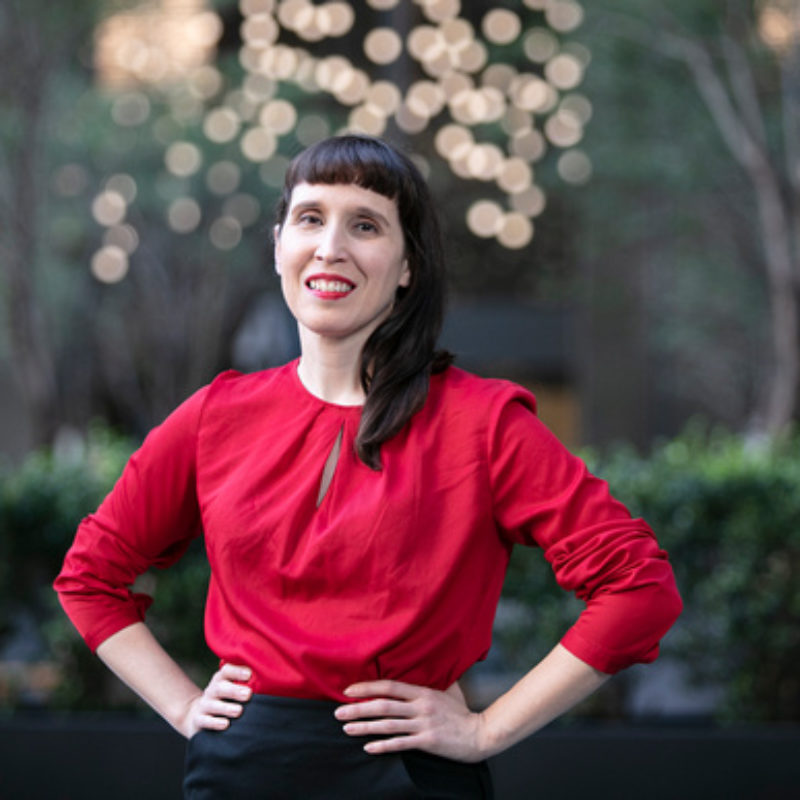In this tumultuous year, there are so many nonprofit organizations doing direct service work who are facing severe financial hardship. Working for Cal Wellness, I was able to step up and help some of those organizations directly this year by joining the Cole’s Fund committee, a grantmaking program and professional development opportunity for non-grantmaking staff. Part of the goal of this program is making sure that all staff have an opportunity to understand and participate in the core function of the organization.
I’ve worked in philanthropy for the better part of a decade, and Cal Wellness is the second philanthropic foundation I’ve worked for. Social impact communications is my passion. As Cal Wellness’ digital communications manager, I get the chance to tell stories of the foundation’s work But I don’t get to do any grantmaking. Cole’s Fund gave me a chance to bring my communications skills to the committee while also being able to learn and do grantmaking.
This year, the Cole’s Fund cohort included eight colleagues and me representing nearly every department (led by Director of Learning and Innovation Tina Eshaghpour, and co-facilitated with Stephanie Corpuz). Our mission? To identify the most urgent issues of 2020 in considering how to focus our giving. After much discussion, we selected mental health as our focus. While mental health is not one of Cal Wellness’ Advancing Wellness grantmaking strategies, it is typical for Cole’s Fund to support organizations whose work falls outside our Advancing Wellness grantmaking strategies. And this issue felt especially timely and relevant. Plus, this year, we received from the board the most funds we’ve ever had for Cole’s Fund – $75,000 – and we were determined to make sure we used it well. While this amount is considerably smaller than the grants we typically give in our programmatic grantmaking under Advancing Wellness, these relatively small grants can make a big difference for the grassroots organizations we funded, especially in a year like this one.
What we learned
In our research, we learned a few alarming statistics from the CDC that highlighted the impact of the pandemic on mental health:
- One in four young adults between the ages of 18 and 24 considered suicide in the month before being surveyed because of the pandemic.
- More than 40 percent of those surveyed say they experienced a mental or behavioral health condition connected to the COVID-19 emergency.
- The toll is falling heaviest on young adults, caregivers, essential workers and minorities.
With these sobering statistics in mind, we further researched the issue, consulted an issue expert (Stephanie Bell-Rose of The Steve Fund) identified potential organizations, performed due diligence, conducted site visit phone calls with selected organizations, crafted grant writeups and ultimately presented our findings and recommendations to CEO Judy Belk.
Our recommendations
My research led me to the Riverside Area Rape Crisis Center. Founded in 1973, the center provides culturally responsive support and services to survivors of sexual assault and their families. They also provide community education to achieve awareness and prevent all forms of sexual violence. Additionally, RARCC provides free resources and services for victims and survivors of sexual assault and their families. During COVID-19, proactive solutions and care has become especially important, especially for people who are forced to quarantine with their abusers. The funds we provided through Cole’s Fund will be used to support the center’s behavioral health department, including the hotline for emergency response and clinical needs.
Each member brought forth recommendations of fantastic organizations to the committee, including: Beats, Rhymes and Life, Bella's House of Hope, Community Now, Frontline Workers Counseling Project, HumanSave, Open Paths Counseling Center, San Joaquin Valley Asian Pacific Islander Mental Health Project, Stanislaus Multi-Cultural Community Health Coalition West Modesto King, and The Village Project. We presented these organizations first to Judy, and finally to the board in December.
Learning and teaching
During our time together as a committee, we leveraged our various areas of expertise throughout the process. For the first time, individual committee members from various departments coached the larger committee on various aspects of Cole’s Fund grantmaking: Sue Ip led a financial review training. I spoke to the group about how to navigate social media (since many small organizations use social media channels rather than standalone websites for their online presence). Daniel Sanjines shared grantmaking expertise and insights throughout the program as part of the Grants Programs Department. And long-time Cole’s Fund participant Brandon Smith provided historic perspective on Cole’s Fund while advising us along the way.
During our board meeting presentation, the committee shared what we learned. The stigma of mental illness – both in diagnosis and treatment – was one learning. Another learning was the importance of using our grantmaking to benefit underserved populations, including low-income communities, frontline essential workers, communities of color, and survivors of abuse (among many others). And a tremendous learning for us was the importance of expressing our gratitude to these organizations for the work they do.
What’s next
Since 2014, Cole’s Fund has given $264,700 to 56 organizations. Knowing that we were able to provide support to organizations in dire need of help was gratifying, but we know there’s so much more work to do. We thank every organization for their dedication and hard work, and we thank former interim president of Cal Wellness Cole Wilbur for helping create the gift that has kept on giving, year after year.
* Special thanks to Stephanie Corpuz for curating the data cited in this article.

